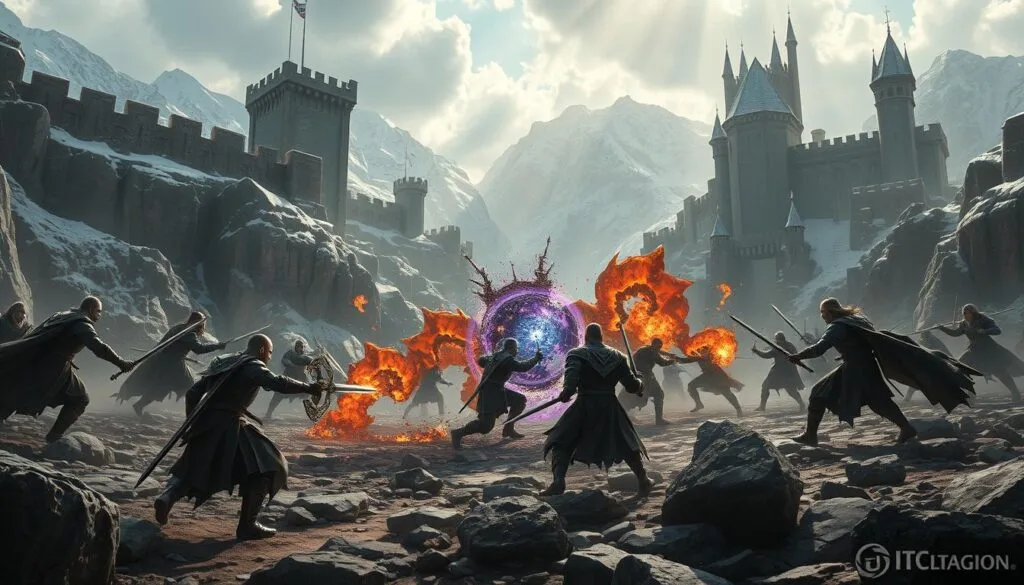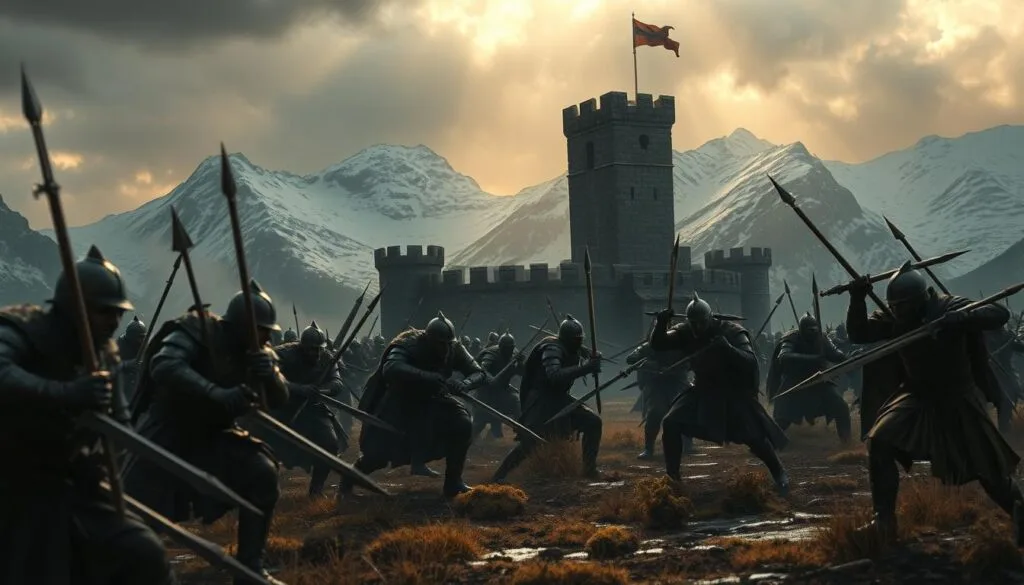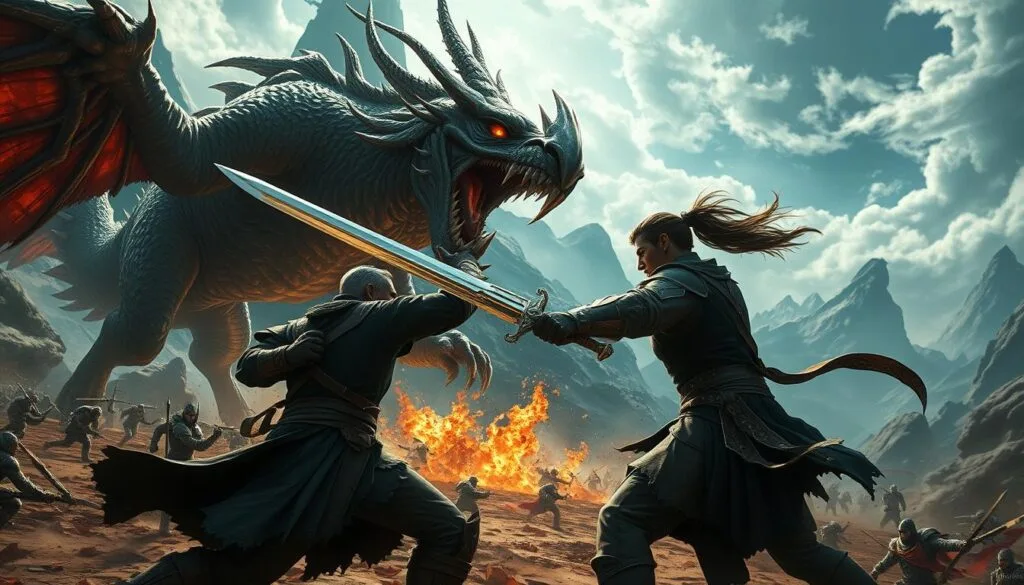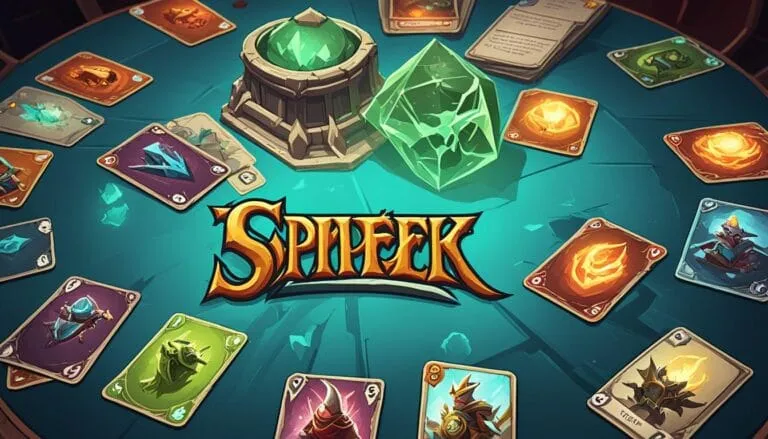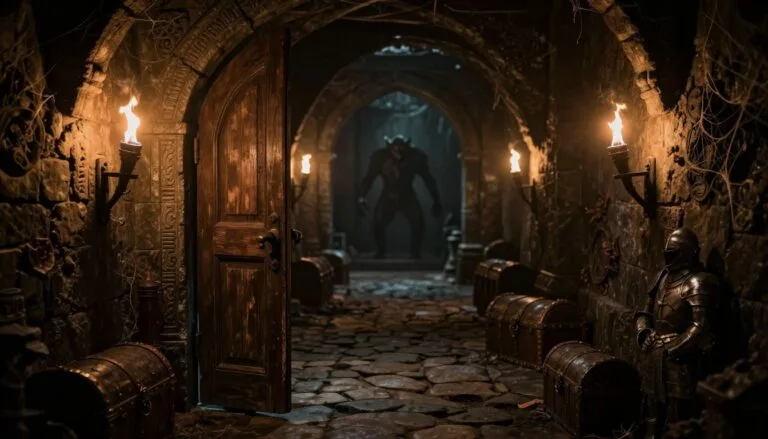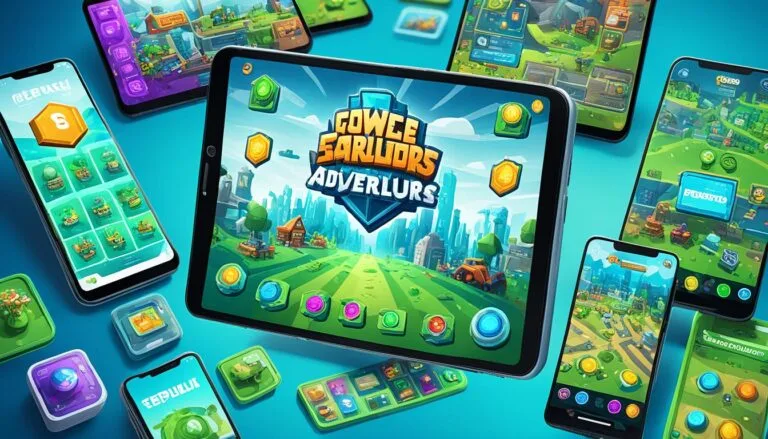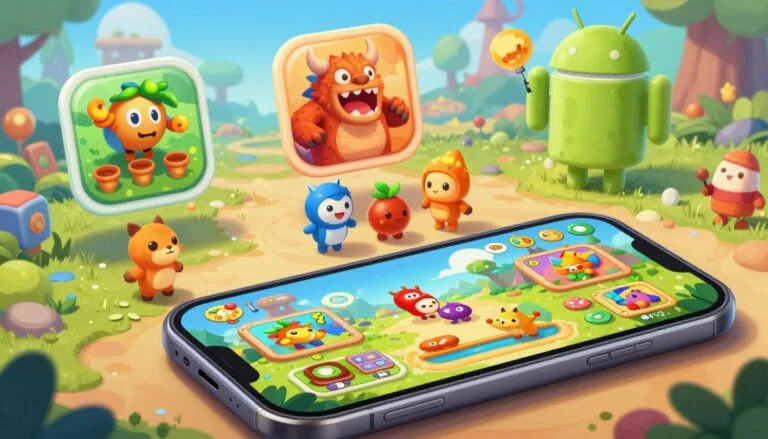This curated guide highlights a list that blends legacy classics and modern standouts. It shows how titles like Fallout (1997) and Planescape: Torment reshaped choice, atmosphere, and narrative depth.
We define a great game by clear measures: a strong story, memorable character arcs, a coherent system that supports real choice, and combat that serves the tale. Some entries welcome newcomers; others reward veterans seeking deeper mechanics.
Expect practical notes on time commitment, series entry points, and why fans still call certain titles among the ever made. From Deus Ex’s level design to Xenogears’ epic scope, each pick explains the way it pushed the genre forward.
Key Takeaways
- This list mixes classic and modern titles to map the genre’s evolution.
- Great design links story, system, and combat into a coherent whole.
- Some games act as ideal gateways; others demand time and mastery.
- Series often reveal new layers on replay and over time.
- Use this guide as a roadmap to find the right series for your mood and schedule.
Why Best RPG Games Still Captivate: Story, Systems, and Freedom
What keeps certain role-playing experiences alive is how choice shapes consequence. A strong story gives emotional weight, while a clear system turns choices into lasting results over time. That mix is the reason a single quest can still matter months later.
Design examples show this clearly. Deus Ex lets you solve an obstacle with stealth, combat, or conversation. Planescape: Torment proves a story-first design can carry a title even when encounters are simple. Fallout’s ending slides remind you that your actions affected people and places.
- Meaningful characters and adaptive quests make each playthrough distinct.
- Flexible mechanics let you change your way mid-mission without harsh penalty.
- Combat should reinforce stakes, not just pad play time.
- Well-woven systems align your build with the series identity and challenge.
Great rpgs prize choice density in each scenario over one fixed path. They let you experiment safely, deepen bonds with characters, and reward long-term investment. That design quality, not just nostalgia, keeps them alive across time.
Classics That Defined the Genre
A handful of late‑90s and early‑00s titles rewired how interactive stories and systems fit together.
Fallout (1997) and Fallout 2 (1998) taught designers that choices should ripple outward. Their epilogue slides and faction reputations made consequences visible. Fallout 2 widened scope with deeper faction systems and simple quality‑of‑life fixes like follower commands.
Planescape: Torment — story as the main engine
Planescape: Torment (1999) reads like a playable novel. Its writing and worldbuilding remain a high bar. Combat is weak, but the game proves narrative can carry an entire campaign.
Deus Ex — agency by design
Deus Ex (2000) rewards curiosity. Each obstacle offers multiple ways through, and the mechanics support different play styles. The result is per‑encounter strategy, not a single enforced build.
Vampire: The Masquerade — Bloodlines — mood and characters
Bloodlines (2004) captures urban nights in L.A. with unmatched ambiance and memorable characters. Its final act felt rushed, yet the mood and dialogue keep players returning years later.
- Contrast: some of these titles put story first, others let systems elevate tactical combat.
- Influence: level design, quest scripting, and reactive NPCs in modern series trace back to these releases.
- Tip: choose the way that suits you — story‑first or systems‑first — both offer lasting rewards.
Story-First Epics That Stay With You
Some games earn cult status not for flawless mechanics but for narratives that haunt players long after the credits. These titles prize story, theme, and rich characters above moment-to-moment polish.
Xenogears: Ambitious themes with a cult-classic legacy
Xenogears ranks in many personal top lists as a contender for the best ever made when it comes to narrative ambition. Its themes are vast and often dense.
Gameplay can feel uneven, but the plot and character revelations keep discussions alive to this day.
Final Fantasy VI and VIII: Cinematic storytelling and unforgettable characters
Final Fantasy VI blends mature writing with ensemble drama; its scenes land emotionally and grow on you with replay. VIII favors cinematic spectacle and intimate character beats, making each moment feel staged for impact.
Both entries show how a series can refine the way it tells stories over time.
Suikoden II: Political drama and heart with a massive cast
Suikoden II uses a huge roster so no one feels like filler. Politics drive the plot, and loyalties evolve in believable ways.
That scale turns small moments into resonant payoffs and invites a slower, reflective play pace.
- Why they stay: plot, theme, and character lock together into lasting memories.
- Play advice: pick the entry that fits your mood—romance and spectacle, or political intrigue and friendship.
- Pacing: these rpgs reward patience; play slow to savor the nuance.
“Even when mechanics wobble, narrative elements can lift a title into the canon of classics.”
Combat Systems You’ll Love to Master
When combat is both deep and readable, play transforms into a study of choices. These titles put the combat system front and center, teaching you rules, timing, and reward.
Final Fantasy Tactics and Disgaea: deep tactical layers
Final Fantasy Tactics is often called “probably the best tactical RPG ever made.” Its job system, positioning, and turn order mean mastery builds over time.
Disgaea contrasts with absurd scaling and optional grind. It rewards creative exploits and lets veterans push numbers to ridiculous highs.
Valkyrie Profile and Vagrant Story: action-forward depth
Valkyrie Profile blends timing-based action with party coordination. Vagrant Story fuses combo mechanics and gear focus into deliberate, weighty fights.
Shin Megami Tensei: Nocturne — punishing and brilliant
SMT: Nocturne is hard as heck but fair. Demon fusion, affinities, and party makeup decide success. It forces systems literacy; learn the rules and tough encounters flip from deadly to doable.
“Understanding mechanics turns threats into opportunities and makes every win feel earned.”
- These games invite multiple approaches per encounter.
- Take notes on synergies; strategy opens with study.
- Tactical fans often revisit these to test new builds and push difficulty.
Open-World Sandboxes That Define Adventure
Open worlds can turn curiosity into a compass, where each path invites its own tale. These sandboxes prize discovery over signposted objectives. They reward players who wander and listen to the world.
The Elder Scrolls III: Morrowind — Alien worldbuilding and boundless exploration
Morrowind makes every area feel handcrafted. The architecture, rumors, and monsters build a sense of place you won’t find in later entries.
Spend hundreds of hours wandering. You will stumble into small stories that never appear on a map. That gentle mystery is the main way the game rewards curiosity.
Gothic 3 — Rough edges, big payoffs, and emergent paths
Gothic 3 is rough but alive. Factions react to your choices and towns change if you help or attack them.
The systems and mechanics create emergent tales. Side paths become personal main quests as you push outcomes in surprising directions.
- Freedom: exploration leads to unique areas, not just markers.
- Systems matter: interlocking elements build narrative through play.
- Longevity: years later these worlds still define adventure for many rpgs fans.
“Let the map unfold slowly; the best discoveries are those you make by accident.”
Tactical and Strategy-Forward RPGs for Thinkers
For players who love to think three moves ahead, strategy-forward titles make planning feel rewarding. These game choices prize clear information and steady pacing over twitch reflexes.
Front Mission and Ogre Battle: Strategic depth with character-driven campaigns
Front Mission centers on wanzer customization. Tuning weapons, armor, and parts changes both the combat and the campaign identity. Characters gain weight because their loadouts matter in tight fights.
Ogre Battle mixes map-level strategy with role-playing growth. Unit placement and long-term momentum shape outcomes. Its hybrid mechanics reward planning across weeks of in-game time.
Fire Emblem: Elegant tactics with permadeath stakes
Fire Emblem turns positioning and permadeath into tense calculation. A single move can define a character’s fate, so you learn to value foresight over haste. This system makes each loss feel meaningful and each victory earned.
“The best entries marry mechanics, narrative stakes, and campaign pacing into a cohesive whole.”
- Clear rules and fair challenge let skill, not grind, drive success.
- Tuning a unit to fill a precise role brings deep satisfaction.
- Tactical fans who love numbers and nuance will find these games deeply satisfying.
JRPG Corner: Timeless Journeys and Modern Classics
From moonlit dungeons to sunlit towns, these journeys balance intimate character beats with grand adventure. The next picks show how story, melody, and clever systems shape lasting play.
Chrono Trigger and Chrono Cross: Time-bending tales and eclectic casts
Chrono Trigger pairs tight pacing with memorable set pieces. Chrono Cross then expands the approach with a massive cast and time as both theme and mechanic to enrich the story.
Dragon Quest VIII: Classic charm, modern polish
Dragon Quest VIII blends easygoing pacing and polish. It delivers hundreds hours of calm exploration without overstaying its welcome, making it a warm fantasy retreat.
Persona 3 FES and Persona 4: Social links meet dungeon mastery
Persona 3 FES and Persona 4 balance daily life systems with tense dungeon runs. Small choices in town shape how your characters grow and how the plot resolves.
Breath of Fire II and III: Transformative mechanics and heartfelt stories
Breath of Fire II and III center on transformation mechanics and short, touching vignettes. Their moments build an enduring world where party combos and optional tasks reveal new elements on later runs.
“Start with Chrono Trigger if you want a masterclass in adventure structure and joyful discovery.”
- These series prove JRPGs sing when story and systems mesh.
- Enjoy optional content and party synergies to unlock fresh layers.
- Each title holds a distinct place in the broader series landscape, keeping the genre vibrant.
Action RPGs That Feel Great to Play
Action titles often win players by making every hit feel meaningful and every drop worth chasing.
Diablo set the template: a click-to-kill cadence, randomized loot tables, and a loop that rewards persistence. The system turns short runs into long campaigns where each chest might change your build. Clear feedback and satisfying hit sounds make combat feel immediate.
Torchlight takes that loop and trims the edges. By streamlining menus and focusing on fast encounters, it keeps gameplay accessible for quick sessions without losing depth. Progression still matters because gear and small talent choices shape how fights play out.
The Witcher: Enhanced Edition tilts toward mature story and gritty worldbuilding. Its combat is weighty rather than flashy, so encounters hinge on timing and enemy telegraphs. Players who value tone and narrative will find the experience rewarding even when the mechanics are rougher.
“Combat and feedback matter — readable telegraphs and weight behind each hit turn tension into triumph.”
- Why it works: loot must stay meaningful; good balancing prevents power creep.
- Play tip: experiment with builds that match preferred mechanics and pace.
- Recommendation: choose Torchlight for quick sessions, Diablo for long mastery, and The Witcher if tone and narrative are your priority.
Choice and Consequence: Role-Playing Your Way
Agency in a role-playing title grows when the world responds to who you are, not just what you fight.
Arcanum: Of Steamworks and Magick Obscura splits the world between magic and technology. That split changes how towns, factions, and even shopkeepers treat your character at every step.
Dialogue checks, visible faction reactions, and gear-based responses mean the systems read race, gender, and clothing. Combat is often janky and imbalanced, but that roughness is offset by extraordinary role-play freedom.
Dragon Age: Origins — party dynamics and bonds
Dragon Age: Origins makes companions matter. Allies react to your choices, shaping trust, romance, and quest outcomes across time.
Choosing who to bring, which abilities to use, and what risks to accept turns combat into a mirror of intent. Your way of playing changes how the story and characters resolve conflicts.
“When decisions leave visible marks, the world feels alive and your role becomes meaningful.”
- Experiment with different origins and builds to see varied responses.
- Replay with new party composition to surface hidden branches.
- Let combat choices reflect your role-play goals, not just efficiency.
Both titles reward players who prize agency. Systems that reinforce your chosen way to inhabit the world make each decision feel lasting and true to the character you forge.
Best RPG Games for Long-Play Marathons
A true marathon game unfolds slowly, letting exploration and story stack into meaningful payoffs.
Skies of Arcadia and Grandia II / III
Skies of Arcadia and the Grandia entries shine for marathon sessions. They mix upbeat adventure, broad exploration, and steady narrative momentum. That steady pacing keeps each chapter fresh and inviting over many hours.
Mass Effect
Mass Effect earns its place by letting choices ripple across a trilogy. Your decisions deepen character arcs and shape the galaxy in ways that reward long-term play. Importing saves or replaying earlier entries strengthens the emotional weight of later scenes.
How to pace a long run:
- Break sessions into chapters or set hour limits to avoid fatigue.
- Mix main quests with side content to keep urgency and variety in balance.
- Look for quality markers: consistent tone, clear chaptering, and systems that expand rather than bloat.
“Let characters breathe; long arcs pay off when story beats and systems work together.”
These titles show that the best long-play experiences pair resonant storytelling with gameplay loops that stay engaging. Choose the way you want to marathon — long weekends or nightly chapters — and the journey will stay joyful.
Hidden Gems Worth Your Time
Some lesser-known titles pack bold ideas into compact, memorable runs. These entries reward curiosity and often push systems and narrative in fresh directions.
Live A Live and Terranigma: experimental SNES-era brilliance
Live A Live uses an anthology structure that lets each chapter try a new tone and mechanic. Its short, sharp stories still surprise.
Terranigma offers an ambitious scope on a single cartridge. The world evolves over time and the story pays off across distinct eras.
Bahamut Lagoon and Valkyrie Profile 2: overlooked standouts
Bahamut Lagoon blends strategy with dragon bonds. Its hybrid system feels like a fantasy tactics lab and is probably best explored via retrospectives or re-releases.
Valkyrie Profile 2 pairs striking art with a combat curve that rewards practice. The mechanics are deep and demand patience, but the payoff is rich.
Rogue Galaxy and Radiata Stories: PS2-era adventures
Rogue Galaxy sells space-faring scope and solid action; Radiata Stories mines branching town allegiances for dramatic moments. Both titles hide strong characters and clever elements the market missed at release.
- Try these when you want different mechanics and tone from the mainstream.
- Be patient with older interfaces; their ideas repay attention.
- Keep a small backlog list of hidden gems to rotate with marquee releases.
“Systems experimentation makes even short sessions memorable.”
Newcomer’s Path: How to Choose Your First Great RPG
A clear approach to play — whether you chase story, combat, or freedom — makes the first pick sing.
Start by picking the way you want to play. Do you want character bonds and dialogue, tight combat, or open exploration? This choice narrows the list quickly and keeps your first hours joyful.
If companions matter, try Dragon Age: Origins for rich party dynamics. For mature themes and weighty choices, The Witcher: Enhanced Edition shows how story can hold a game together.
Prefer wandering and discovery? Pick Morrowind. For narrative impact and memorable endings, community favorites like Fallout and Planescape: Torment remain must-try classics.
Match system complexity to your comfort level. Start with simpler mechanics and scale up later. Set realistic time expectations so you don’t burn out.
- Follow series order when continuity matters (for example, Mass Effect).
- Read a quick feature list — combat style, story tone, difficulty — and pick what fits your mood.
- Use easy modes or forgiving builds if challenge would block your fun.
“The best first pick is the one that gets you excited to come back tomorrow.”
Keep short notes on builds and moments you loved. Those notes make future choices easier and help you climb into deeper systems with confidence.
Multiplayer and MMO Milestones That Shaped the Genre
Persistent online worlds taught designers how systems can power player-made narratives.
World of Warcraft set the baseline for modern MMOs. Its quest flow, social hubs, and accessible raid design became the default that many games still follow.
Final Fantasy XI Online proved a different strength: long-term cooperative play. For many people, its reward was steady progression and shared investment across years.
EVE Online shows how deep systems let players write their own history. Economy, alliances, and large-scale conflict create emergent stories that matter even to those who only watch from afar.
- Years of updates refine mechanics and broaden adventure options.
- The people you meet often define your most memorable hours.
- MMO design balances a crafted story with repeatable content to keep time investment meaningful.
“Join a guild or linkshell to learn faster; social bonds turn hard fights into lasting memories.”
Sample trial periods and social hubs before you commit long hours. Set healthy boundaries: these titles reward marathons, not sprints.
Series Spotlight: Final Fantasy
Few series mix theatrical moments and mechanical invention like Final Fantasy does. The collection moves between eras, testing new systems while keeping a familiar fantasy heart.
From IV to X and XII: evolving systems and unforgettable moments
Final Fantasy IV signaled a turn toward mature story beats and stronger character focus. Later entries like VI, VIII, and X pushed cinematic presentation and emotional set pieces.
XII then changed the system landscape with real‑time gambits, blending tactics and freedom in novel ways.
Final Fantasy Tactics and spin-offs: job mastery and deep mechanics
Final Fantasy Tactics stands as a benchmark for job depth and strategic design. Its job boards and mastery loops still influence strategy titles today.
- Traceable evolution: IV’s drama → X’s cinema → XII’s system innovation.
- Iconic beats—operas, farewells, and twists—define the series’ emotional range.
- Systems like ATB, junctions, gambits, and job boards teach distinct approaches to party-building.
“Final Fantasy endures because it pairs story ambition with flexible, expressive systems.”
Series Spotlight: Shin Megami Tensei and Persona
Few series balance bleak philosophy and punishing systems as cleanly as Shin Megami Tensei and its Persona offshoot. These titles pair stark themes with mechanics that reward study and discipline.
Nocturne and Digital Devil Saga: Demons, difficulty, and dark philosophy
Shin Megami Tensei: Nocturne is famously punishing yet fair. Combat demands attention, and demon fusion choices alter your alignment and options in major ways.
Digital Devil Saga trims some complexity but keeps intensity. Its battles feel tighter and the atmosphere is relentless, making each victory feel earned.
Persona 3 FES and 4: Everyday life meets dungeon-crawling mastery
Persona blends daily routines with dungeon systems. Social links turn conversations into combat strength, so time management becomes a core mechanic.
These entries teach prioritization: who you spend time with affects abilities and resilience in harder fights. The result is a series where characters and systems directly reinforce one another.
- Dark vs. accessible: SMT mainline is steeper; Persona is friendlier for new players.
- System depth: demon fusion and alignment reward experimentation and mechanical literacy.
- Discipline: resource management and boss design enforce careful play.
- Artistry: soundtracks, UI, and visual motifs make the series instantly recognizable.
“Mastery here feels earned — tough defeats turn into unforgettable victories.”
Fans of final fantasy looking for a tonal shift will find Persona a revealing contrast: narrative warmth paired with disciplined systems. Try Persona first if you want a gentler climb; tackle SMT for a darker, more demanding climb.
Sci‑Fi Standouts with Incredible Worlds
When tech, conspiracy, and cosmos meet, play choices take on new weight. Sci‑fi titles often pair tight systems with huge stakes, so every decision can reshape a place or a planet.
Deus Ex and Mass Effect: Player agency across conspiracies and galaxies
Deus Ex prizes per‑encounter agency and level design that rewards curiosity. Its grounded conspiracies make small choices feel intimate and hard to undo.
Mass Effect spreads consequence across a galaxy. Character arcs and imported decisions move you onto different paths through the series.
Both titles use dialogue tools, alignment flags, and modular progression to bind mechanics to story. Pick Deus Ex first to study design, then move to Mass Effect for sweeping narrative payoff.
Parasite Eve: Survival horror meets tactical progression
Parasite Eve blends survival horror elements with an rpg system that favors positioning and planning. Action beats punctuate tense exploration while combat remains strategic.
The result is a hybrid that keeps pacing sharp without losing depth. Years later these titles still set expectations for sci‑fi rpgs and influence how systems support theme.
“Choose by scale: intimate conspiracies or galaxy‑spanning epics — both reward curiosity and care.”
- Worldbuilding: space stations, labs, and alleys feel lived‑in.
- Action plus systems: moments of flair keep combat lively and tactical.
- Play order: Deus Ex → Mass Effect to learn design then feel narrative sweep.
Conclusion
Every player finds a different spark that turns hours into memories. The one best pick depends on your mood, your available time, and whether you crave story, systems, or open exploration.
Shortlist three titles from this guide: mix a probably best classic with a hidden gem to keep your rotation fresh and a lot fun. A great rpg often balances character, story, and mechanics so each part supports the whole.
Some of the games ever made stood out because they took risks in story or system design. A bit of friction in older releases can make victories sweeter and moments more memorable.
Pick a place to start today and share your list and order with the community. Discovery is part of the adventure, and the next favorite is only one play away.




